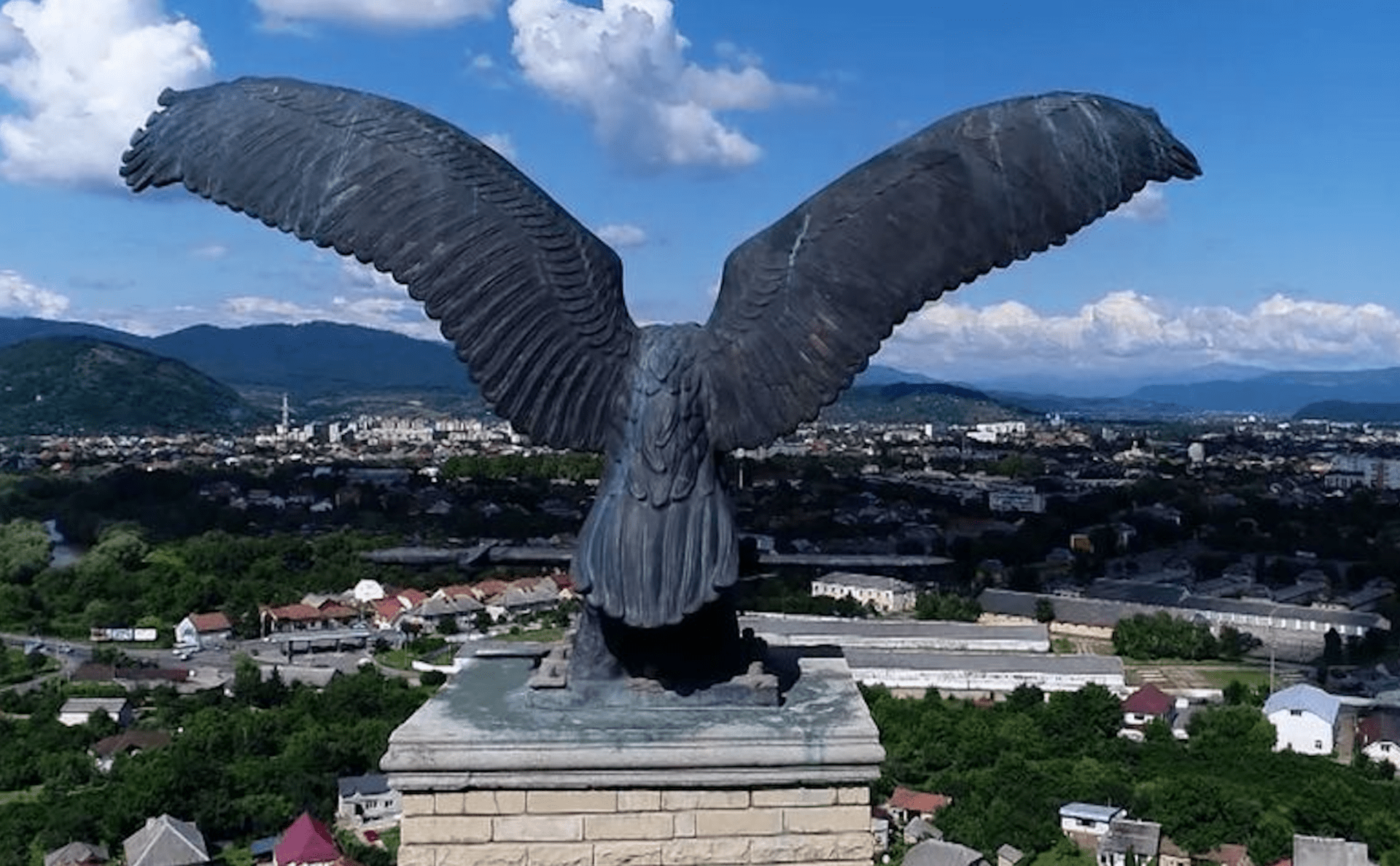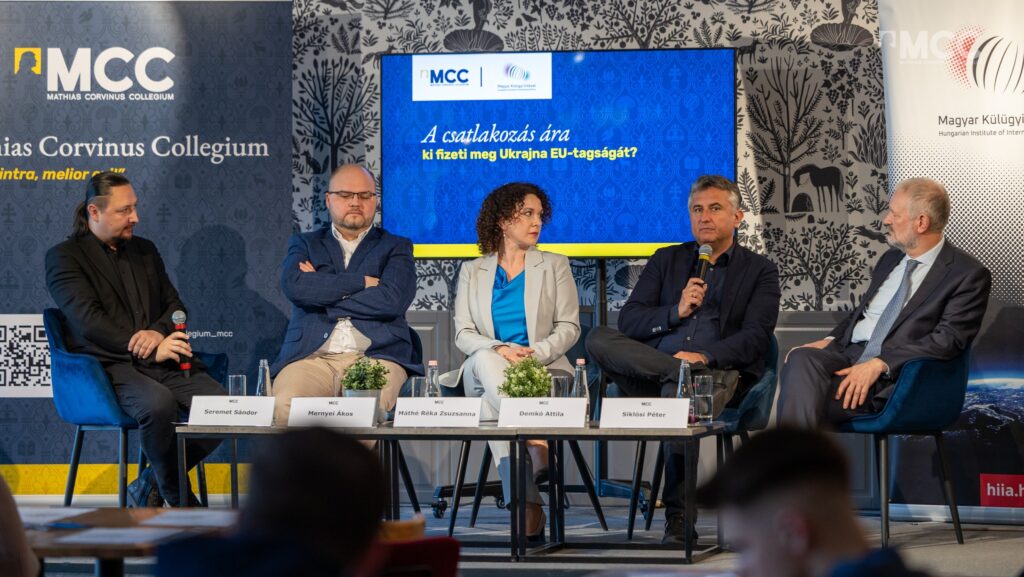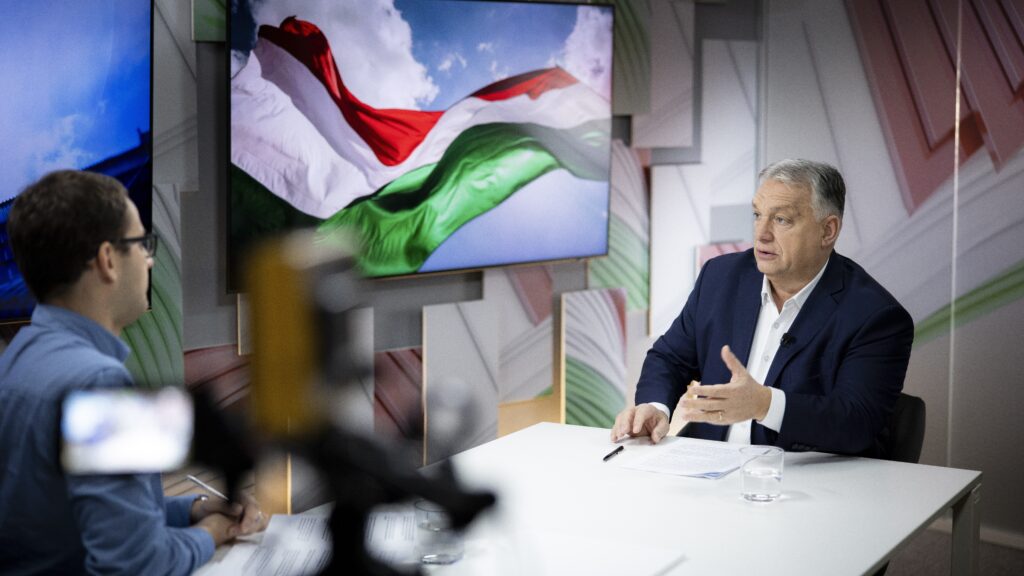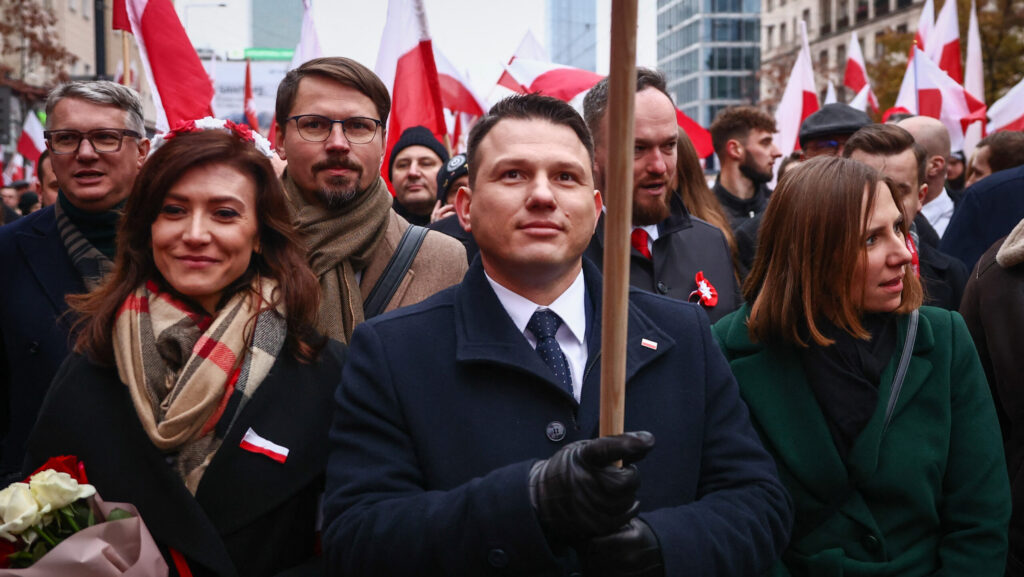Ukraine is a great country. It has a unique folk culture, beautiful, historic cities, and against all odds, has survived horrific national tragedies, preserving its language and traditions.
But although Ukrainian polyphonic folk songs are amazing, Ukrainian pottery is pretty, Odessa and Kyiv are impressive, and the suffering during the Holodomor was almost unthinkable, Ukraine is hard to like.
Hardly a year passes by without anti-Hungarian actions in the country, carried out by unknown perpetrators, state-sponsored or state-condoned groups or by the local authorities themselves. The most recent of these was the decision of the municipality council of Munkács (Mukachevo) in Transcarpathia to remove the turul bird statue, erected in 1896, from the Munkács castle and replace it with the Ukrainian coat of arms.
The Ukrainian state is trying to build Ukrainian national identity at the expense of other nationalities
The country has been fervently building a nation state and its national identity since it gained independence in 1991. The 1996 constitution of Ukraine, a country that has had practically no statehood of its own before 1991, except for the Kiev Rus period, explicitly states that one of the most important duties of the state is to build Ukrainian national identity. This is understandable—from tsarist to Soviet Russia, attempts to dilute and ultimately erase Ukrainian identity, including the Ukrainian language, were continuous. What is less understandable is why the Ukrainian state, and the political elites, are trying to build Ukrainian national identity at the expense of other nationalities.
This attitude of intolerance and outright hostility towards people belonging to other nationalities is nothing new. Ukrainian history in that regard is ugly, and it is an understatement to say that the country has not fully come to terms with it. After the German occupation of Ukraine, Ukrainian nationalist militias, the OUN and the UPA fought alongside the Nazi occupiers and took part in atrocities against the Jewish and Polish population. According to historians, Ukrainian nationalist forces are directly responsible for the killing of 70 to 100,00 Poles and had an undeniable role in ‘mass murdering and ethnic cleansing’ the primary victims of which were Ukrainian Jews. The whitewashing of these crimes and the mythologising of Nazi collaborators has sparked outrage in many countries, especially after the putting up of a gigantic statue to Stepan Bandera, in Lviv. But as recently as last year two local councils in Ukraine renamed their stadiums after Bandera and Roman Shukhevych respectively, the latter being described by the Israeli ambassador to Ukraine as the ‘infamous Hauptman of the SS Schutzmannschaft 201 Roman Shukhevy.’
In an effort to strengthen the primacy of the Ukrainian language and enforce its use in a country that has never been a homogeneous nation state, Ukrainian legislators passed both the language and education laws, in 2019 and 2017 respectively, despite protests from Hungary, Russia, Poland and Romania. The controversial piece of legislation clearly aims to suppress the native language use of the country’s national minorities.
Past and present traumas do not justify the blatant acts of intolerance against the Hungarian community
Ukraine is a traumatised country that is now suffering from aggression. However, past and present traumas simply do not justify the blatant acts of intolerance in the present against the Hungarian community in the country. Also, these traumas should not inform the central and the local governments’ actions towards a nation that has been helping Ukraine in innumerable forms, and not just since the beginning of the war, but for at least one and a half decades.
Ukraine will not be able to count on the sympathy and cooperation of Hungary for long if it continues to try and erase history. Transcarpathian Hungarians have lived there for more than a thousand years. Munkács (Mukachevo) was first mentioned in written records in 1064 as Muncas. The town has always been multi-ethnic, but its history was essentially a Hungarian history until Trianon. Hungary will certainly not apologise for this fact, nor sit idle while it is being denied. The past will not be annulled by short-sighted and counterproductive acts like the removal of the turul statue. What those acts do, however, is demonstrate to Hungarians that despite all the good will, aid, and political support bestowed on their neighbours, there is not much good to expect from Ukraine when it comes to its ethnic minorities and friendly neighbourly relations.








